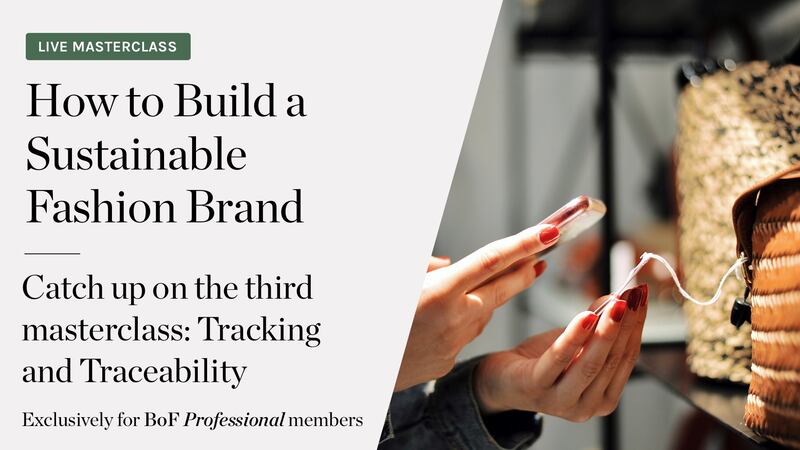
The Business of Fashion
Agenda-setting intelligence, analysis and advice for the global fashion community.

Agenda-setting intelligence, analysis and advice for the global fashion community.

The author has shared a YouTube video.
You will need to accept and consent to the use of cookies and similar technologies by our third-party partners (including: YouTube, Instagram or Twitter), in order to view embedded content in this article and others you may visit in future.
The fashion industry knows that it needs to clean up its act, but when brands themselves don’t know their own supply chains, how can they make the necessary strategic changes?
In the third masterclass in #BoFLIVE’s new series, How to Build a Sustainable Fashion Brand, London Editor Sarah Kent was joined by Dr Helen Crowley, a senior advisor and fellow at Conservation International; Dio Kurazawa, founding partner at sustainability consultancy The Bear Scouts; and Allbirds Sustainability Manager Hana Kajimura for a virtual panel discussing how to track and measure impact in a way that enables meaningful change.
Key Lessons from Masterclass 3: Tracking and Traceability
Also, stay tuned for the next monthly episode of BoF's online learning series How to Build a Sustainable Fashion Brand.
ADVERTISEMENT
Masterclass 4: Buying Better, with Marsha Dickson and Ayesha Barenblat, on November 10th, 15:00 GMT / 12:00 ET
Key questions answered
Learning Outcomes
Masterclass 5: The Case for Culture
Key questions answered
Learning Outcomes
Visit our calendar to find details of upcoming digital events and RSVP.
The fashion industry continues to advance voluntary and unlikely solutions to its plastic problem. Only higher prices will flip the script, writes Kenneth P. Pucker.
The outerwear company is set to start selling wetsuits made in part by harvesting materials from old ones.
Companies like Hermès, Kering and LVMH say they have spent millions to ensure they are sourcing crocodile and snakeskin leathers responsibly. But critics say incidents like the recent smuggling conviction of designer Nancy Gonzalez show loopholes persist despite tightening controls.
Europe’s Parliament has signed off rules that will make brands more accountable for what happens in their supply chains, ban products made with forced labour and set new environmental standards for the design and disposal of products.